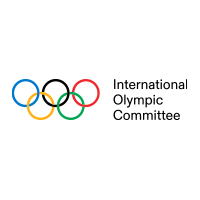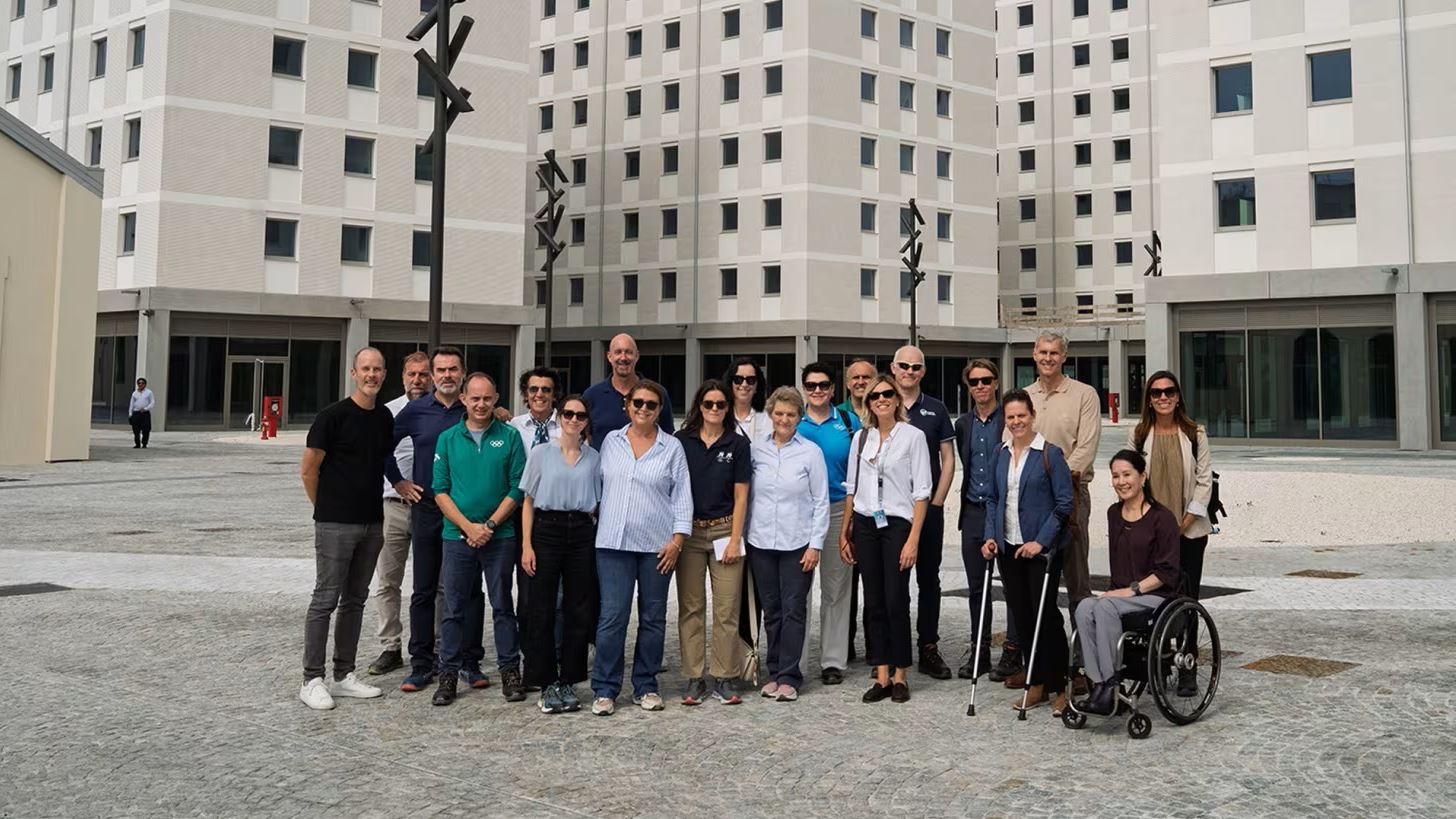17 September 2025 - With just 70 days to go until the Olympic flame is lit in Olympia, Greece, the International Olympic Committee (IOC)’s Coordination Commission has confirmed that preparations for the Milano Cortina 2026 Olympic and Paralympic Winter Games have entered a decisive delivery phase. This follows the Commission’s final visit to Italy ahead of the Games, which will begin on 6 February next year.
IOC President Kirsty Coventry joined the final session of the meetings to speak to the Coordination Commission and Organising Committee members. In her address, which underscored the power of unity and shared purpose, she highlighted the innovative potential of the new Games delivery model being implemented for Milano Cortina 2026: “We all agreed in the (Olympic) Movement that we needed to try to be more sustainable, to reach out to regions. This is the first time we're going to see this. So let's make it not just incredible Games for Milan, for Cortina, but for all the regions, and for Italy, and for the Olympic Movement, especially in today's world where everything is so divided."
We really need to come together and show the world just how powerful we [the Olympic Movement] are.

Kirsty Coventry, IOC President
Building on the President’s words, IOC Coordination Commission Chair Kristin Kloster commented on the team’s progress and focus on fan and athlete engagement. She said: “We are now in the final stretch, and the team is fully in delivery mode, tackling an immense workload in the coming months. That’s why integrated teamwork – from the public authorities to the Organising Committee and its partners – is essential, with everyone working tirelessly side by side. Plans should now become reality, as the excitement for the Games continues to build.”
With events spread across multiple regions, we must ensure every athlete and fan can feel the magic and the unique Italian spirit of these Games. Sustaining that focus and energy right up to the Closing Ceremony will make Milano Cortina 2026 truly unforgettable.

Kristin Kloster, IOC Coordination Commission Chair
From the Milano Cortina 2026 side, Organising Committee President Giovanni Malagò said: “This session of the Coordination Commission has been a moment of constructive dialogue and great value. It marked the last opportunity to meet in person before a series of remote meetings that will accompany us in the coming months, making our working group even more aware of the challenges that lie ahead. We have taken important steps forward, but we are fully aware that the road to Milano Cortina 2026 is still long and demanding. The coming weeks will be decisive, and will require clarity, determination and team spirit to effectively address the operational and strategic challenges that lie ahead. I would like to express my heartfelt gratitude to the Chair of the Commission, Kristin Kloster, and the Executive Director of the Olympic Games, Christophe Dubi, for their unwavering passion and dedication to the Milano Cortina 2026 project. Their contribution, along with that of the entire International Olympic Committee, has been essential in consolidating the vision and ambition that guide us. I would also like to sincerely thank all our stakeholders: local authorities, public and private partners, territories, federations, volunteers and all the organisations that are contributing with competence and generosity to the realisation of a memorable and sustainable edition of the Games. Their trust is our strength. Finally, the presence of President Kirsty Coventry added further value to these days of work, bringing renewed energy and momentum to all of us."
Illustrating the growing anticipation, the Organising Committee explained how excitement is building across the country. The Olympic Torch Relay for example, will unite 20 regions, 110 provinces, and several UNESCO sites in a 63-day, 12,000km journey featuring 10,001 torchbearers and daily public celebrations.
Fan engagement was further supported by the launch of the official Games-time website during the visit, and a new batch of Opening Ceremony tickets being released on 16 September. Overall, almost 800,000 out of a total 1.5 million tickets have already been sold. Combined with stakeholder activations and the cultural events being organised across host regions, which have already involved six million people, these initiatives are bringing the Olympic spirit closer to communities nationwide.
Building on this momentum, operational preparations are now intensifying. Commission members toured the Milan Olympic Village and the new Milano Santa Giulia Ice Hockey Arena – two of the very few venues being built for these Games, with 85 per cent of competition venues already existing. This reflects a new model for the Olympic Winter Games, spreading events across regions to capitalise on established infrastructure and local expertise. Alongside these venue preparations, a new wave of test events, training exercises and simulations over the coming months will ensure that every element is fully aligned for Games-time operations.
With Milano Cortina being the first Olympic Winter Games shaped by the Olympic Agenda reforms, the Organising Committee is committed to reducing their environmental impact and creating lasting socio-economic benefits for their hosts.
While 11 out of the 13 competition venues are existing or temporary, all of them will be powered by renewable electricity. A sustainable sourcing strategy prioritises environmental and social criteria, as well as renting over buying, with 20,000 venue items to be re-used from Paris 2024.
Beyond the preparations for delivery, the benefits of the Games are already taking shape for local communities. Sports promotion programmes have encouraged millions of Italians to move more, leading to the highest levels of physical activity in the country’s history. The Games have also created opportunities to regenerate urban areas and boost infrastructure in mountain regions. The Milan Olympic Village will see a former railway yard turned into a vibrant community hub after the Games, with this becoming Italy’s largest student housing complex. In the mountain areas, health and community services are being strengthened, including new electrical infrastructure that enhances resilience across the region. Accessibility upgrades are on track across the Milan metro, Verona Arena and surrounding areas, with modernised facilities in Trento and Bolzano.
In addition, the Organising Committee has reinforced its commitment to investing in people. Around 18,000 volunteers are currently undergoing 270,000 hours of training, while over 50,000 additional volunteers will contribute to community initiatives. Collaborations with 20 Italian universities are creating career pathways, and EUR 5 million spent on procurement has supported local social and micro enterprises through the Impact 2026 project.
This progress is being driven by unprecedented collaboration. Representatives from host towns, regions and the federal government joined partners and delivery teams during the visit, highlighting the shared commitment of all stakeholders to make these Games a success.
The Milano Cortina 2026 Olympic Winter Games will take place from 6 to 22 February, followed by the Paralympic Winter Games from 6 to 15 March. Remaining tickets are available here, and hospitality packages via On Location here. In recognition of VISA’s long-standing partnership with the Olympic and Paralympic Games, VISA is the official Way to Pay.

